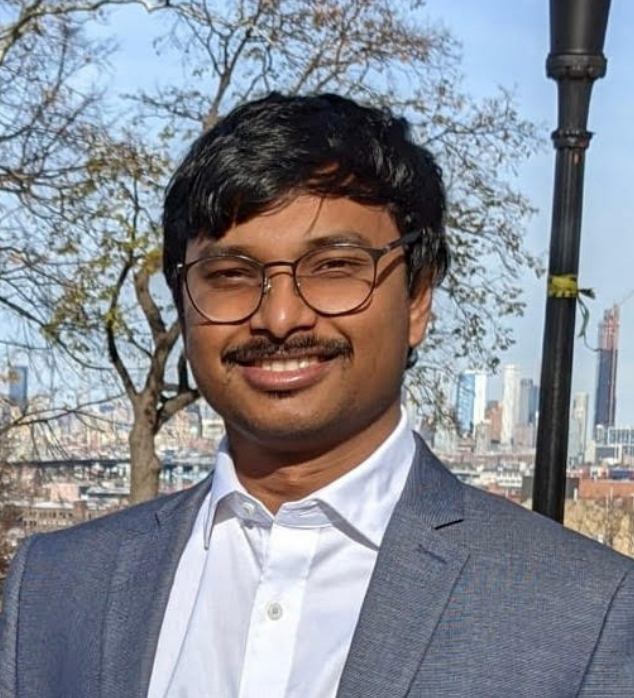Arkajit Mandal
Arkajit Mandal
Department of Chemistry
Columbia University
Abstract
Quantum Dynamics of Light and Matter between Two Mirrors
Placing molecules and materials between mirrors (or inside optical cavities) can enable the generation of exciting new chemical and physical phenomena in a highly controllable manner. In this talk, I will share a few of our theoretical works that demonstrate how photons can play the roles of a catalyst, a solvent, a quantum degree of freedom, beyond their usual role as a source of energy, to modify the chemical and physical properties of molecules and materials that are coupled to quantized radiation. First, I will discuss how quantum light-matter interactions can be utilized to modify the photochemistry of molecules and how a single photon can act as a catalyst to initiate multiple chemical reactions, leading to a quantum yield of more than one. Second, I will share our theoretical work that investigates how coupling molecular vibrations to vacuum radiation inside optical cavities can suppress or enhance the cleavage of specific chemical bonds, as seen in several recent experiments. I will share our theories that reveal that photons can act like solvents to enhance or suppress ground-state chemical kinetics. Next, I will show that quantum light- matter interactions can modify exciton-phonon interactions and can lead to the suppression of phonon-mediated decoherence. This enables fast ballistic transport in materials that are coupled to cavity radiation. I will share experimental results from our collaborators that confirm our theoretical predictions. Finally, I will share our theoretical framework, the quasi-diabatic propagation scheme, that allows for performing on-the-fly ab-initio quantum dynamics simulations, enabling us to investigate a wide range of problems, from photochemistry to polariton chemistry and beyond.
Arkajit Mandal
Dr. Arkajit is a postdoctoral research scientist at Columbia University, working with Prof. David R. Reichman. At Columbia, he is developing theoretical tools to understand and predict new physical effects that emerge when coupling material with a quantized radiation field inside an optical cavity. He is also actively collaborating with experimentalists at Columbia to realize these effects. Prior to this, Arkajit was a graduate student working with Prof. Pengfei Huo at the University of Rochester, where he obtained his Ph.D. in 2021. At Rochester, he developed new quantum dynamics methods and investigated new chemical reactivities enabled by coupling molecules to cavities.
Hosted by Professor Renee Frontiera
